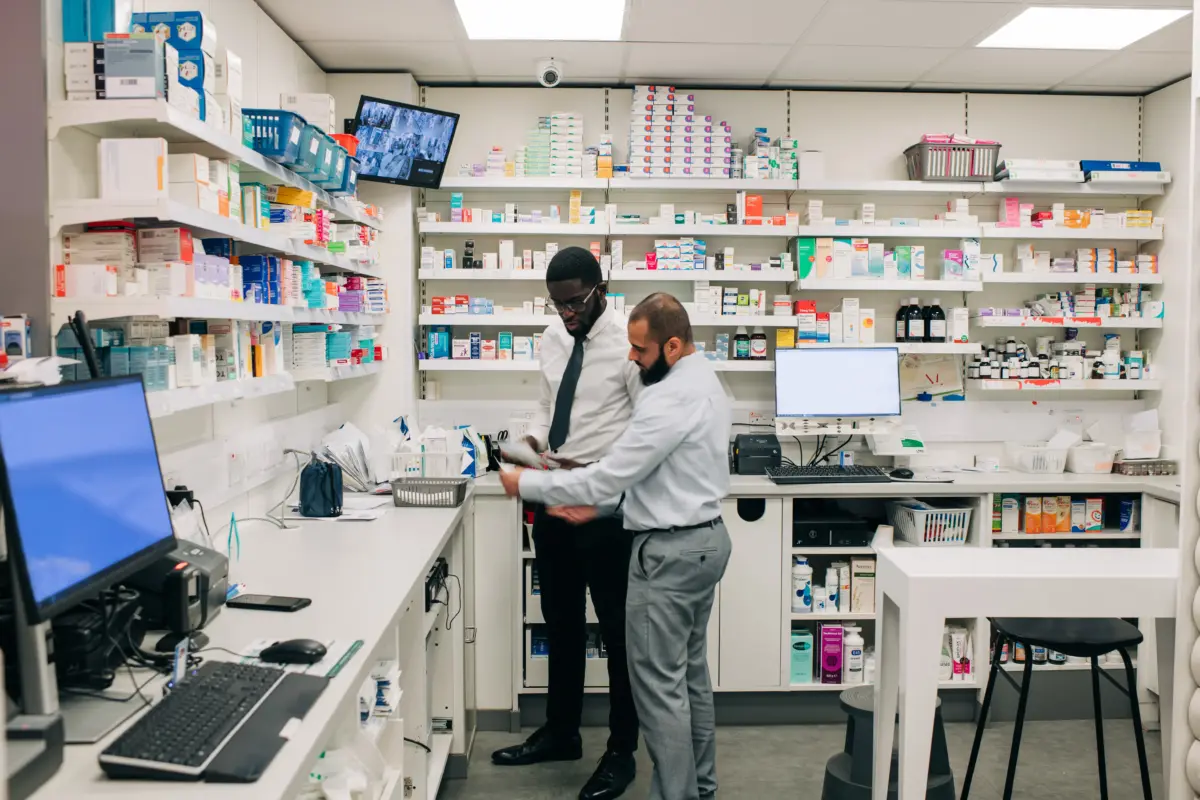Three SSPs issued for Pen V oral solution
In response to significant ongoing disruption affecting supply of Phenoxymethylpenicillin oral solution, the Department of Health and Social Care (DHSC) has issued three new Serious Shortage Protocols (SSPs). The SSPs, introduced with immediate effect, allow community pharmacists to consider different options to enable continued supply of Phenoxymethylpenicillin to mitigate the ongoing supply disruptions affecting this antibiotic.
Effective today, 15th December 2022, SSP040, SSP041 and SSP042 authorised by the Secretary of State provide pharmacists with procedures to follow in providing suitable alternative strengths and formulations of Phenoxymethylpenicillin. The protocols aim to help reduce the number of patients needing to return to their prescriber for a replacement prescription. For each SSP, DHSC has included specific patient counselling points which must be taken into account when deciding whether supply in accordance with an SSP is suitable for a patient.
Pharmacy teams are advised to read the documentation in full for all SSPs published on the NHSBSA’s website.
Gordon Hockey, PSNC’s Director, Legal, said:
“We asked DHSC to introduce Serious Shortage Protocols (SSPs) to help mitigate the ongoing supply disruption affecting the availability of phenoxymethylpenicillin (Pen V) and are pleased to see that some have now been introduced. However, PSNC was not involved in the development of these protocols and our team is urgently clarifying some points to provide contractors with additional guidance and to seek assurances around the reimbursement of any alternatives supplied. We will issue our additional guidance as soon as possible.
More widely, PSNC has also been pressing DHSC to think broadly about what other measures could help to manage the current situation and consider the introduction of greater flexibilities, such as allowing pharmacists more professional discretion to amend prescriptions separate to SSPs.”
Phenoxymethylpenicillin SSPs
SSP040 – Phenoxymethylpenicillin 125mg/5ml oral solution sugar free – SSP040 guidance
| Details of medication to be supplied under this SSP | Quantity to supply – Total quantity supplied in accordance with this protocol is to be equivalent to the number of days treatment supplied on the original prescription | Does the substitution results in a change to whether the use is licenced? |
| Phenoxymethylpenicillin 125mg/5ml oral solution sugar free |
For every 5ml Phenoxymethylpenicillin 125mg/5ml oral solution sugar free, the following quantity must – subject to the inclusion criteria – be supplied in accordance with this protocol: 5ml x Phenoxymethylpenicillin 125mg/5ml oral solution |
No |
SSP041 – Phenoxymethylpenicillin 250mg/5ml oral solution sugar free – SSP041 guidance
| Details of medication to be supplied under this SSP | Quantity to supply – Total quantity supplied in accordance with this protocol is to be equivalent to the number of days treatment supplied on the original prescription | Does the substitution results in a change to whether the use is licenced? |
| Phenoxymethylpenicillin 250mg/5ml oral solution |
For every 5ml of Phenoxymethylpenicillin 250mg/5ml oral solution sugar free, the following quantity must – subject to the inclusion criteria – be supplied in accordance with this protocol: 5ml x Phenoxymethylpenicillin 250mg/5ml oral solution
|
No |
| Phenoxymethylpenicillin 125mg/5ml oral solution |
For every 5ml of Phenoxymethylpenicillin 250mg/5ml oral solution sugar free, the following quantity must – subject to the inclusion criteria – be supplied in accordance with this protocol: 10ml x Phenoxymethylpenicillin 125mg/5ml oral solution |
No |
| Phenoxymethylpenicillin 125mg/5ml oral solution sugar free |
For every 5ml of Phenoxymethylpenicillin 250mg/5ml oral solution sugar free, the following quantity must – subject to the inclusion criteria – be supplied in accordance with this protocol: 10ml x Phenoxymethylpenicillin 125mg/5ml oral solution sugar free |
No |
| Phenoxymethylpenicillin 250mg tablets |
For every 5ml of Phenoxymethylpenicillin 250mg/5ml oral solution sugar free, the following quantity must – subject to the inclusion criteria – be supplied in accordance with this protocol: 1 tablet Phenoxymethylpenicillin 250mg tablets |
No. However, if tablets must be manipulated in some way by patients to be ingested (e.g. crushed) then yes. Please refer to the guidance on using solid oral dosage form antibiotics in children included in the addendum. |
SSP042 – Phenoxymethylpenicillin 250mg/5ml oral solution – SSP042 guidance
| Details of medication to be supplied under this SSP | Quantity to supply – Total quantity supplied in accordance with this protocol is to be equivalent to the number of days treatment supplied on the original prescription | Does the substitution results in a change to whether the use is licenced? |
| Phenoxymethylpenicillin125mg/5ml oral solution |
For every 5ml of Phenoxymethylpenicillin 250mg/5ml oral solution, the following quantity must – subject to the inclusion criteria – be supplied in accordance with this protocol: 10 ml x Phenoxymethylpenicillin 125mg/5ml oral solution |
No |
| Phenoxymethylpenicillin 125mg/5ml sugar free oral solution |
For every 5ml of Phenoxymethylpenicillin 250mg/5ml oral solution, the following quantity must – subject to the inclusion criteria – be supplied in accordance with this protocol: 10 ml x Phenoxymethylpenicillin 125mg/5ml sugar free oral solution |
No |
| Phenoxymethylpenicillin 250mg tablets |
For every 5ml of Phenoxymethylpenicillin 250mg/5ml oral solution, the following quantity must – subject to the inclusion criteria – be supplied in accordance with this protocol: 1 tablet Phenoxymethylpenicillin 250mg tablets |
No. However, if tablets must be manipulated in some way by patients to be ingested (e.g. crushed) then yes. Please refer to the guidance on using solid oral dosage form antibiotics in children included in the addendum. |
Note: If supplying the tablet form the pharmacist should be satisfied that the patient is able to accommodate the switch from liquid to tablet. Please refer to the guidance on how to give solid doses to children included in the addendum. Please note that use in this way may be outside the product licence and is thus “off-label”.
For antibiotics, where the quantity ordered falls exactly between two containers, the rounding down rules do not apply. This is because where the quantity of a liquid antibiotic, for example, reconstituted from granules or powder, is unavoidably greater than the quantity ordered and it is not possible for the contractor to use the remainder of the reconstituted product to fill another prescription, the contractor should supply enough packs necessary to cover the quantity ordered and will be reimbursed based on the nearest pack or number of packs necessary to cover the quantity ordered. PSNC’s Special containers and products requiring reconstitution page has further information.
Pharmacists are required to read and comply with the requirements outlined within the individual SSPs and supporting guidance as published on the NHSBSA website for the antibiotics listed above.
Reimbursement and remuneration
Reimbursement is for the medicine supplied in accordance with one of the above SSPs and not the originally prescribed medicine. The reimbursement price will account for VAT payment. Supply in accordance with on of the above SSPs will result in the following fees being paid to the contractor:
- One Single Activity fee (currently £1.27)
- One SSP fee (£5.35)
Q. How would the pharmacist determine whether the sugar-containing oral solution is appropriate to be supplied in accordance with this SSP?
A. The pharmacist will need to discuss with the patient/carer and use their professional judgment when determining what should be supplied in accordance with this SSP041. For diabetic patients supply sugar free options where you can. If this is not available, pharmacists should let the patient/carer know there is a small amount of sugar contained in the product supplied but don’t withhold treatment.
Q. How would the pharmacists determine whether the tablets should be supplied in accordance with this SSP?
A. The pharmacist will need to discuss with the patient/carer and use their professional judgment when determining what should be supplied in accordance with these SSPs. Where the pharmacist only can source the tablets, the pharmacist will have to be satisfied that the patient is able to accommodate the switch from liquid to tablet. When the medicine is for a child and the pharmacist deems it appropriate to substitute to the tablet form in accordance with this SSP, patients/carers should be directed to the following guidance: Using solid oral dosage form antibiotics in children – SPS – Specialist Pharmacy Service.
Q. Can pharmacists use their professional judgement to supply an alternative product to patients?
A. Supply in accordance with these SSPs only allows supply of a specific substitution up to the duration of treatment prescribed. However, if the pharmacist thinks that an alternative product would be suitable for the patient, they should either contact the prescriber to discuss this (with the patient’s consent) or direct the patient back to the prescriber.
Useful resources
PSNC Briefing 023/19: Serious Shortage Protocols – A guide for community pharmacy teams








